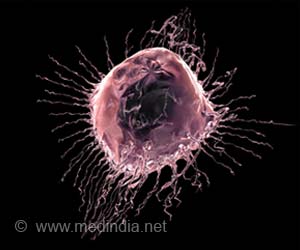Some hormonal contraceptives stimulate cell proliferation in the breast epithelial cells by preferring contraceptive with anti-androgenic progestins may be a safer option with regards to breast cancer risk.

Eventhough hormonal contraceptives increase the risk of breast cancer, a team of scientists led by Professor Cathrin Brisken at EPFL's School of Life Sciences studies different biological effects of different progestins in hormonal contraceptives on the breast tissue - the mammary epithelium published in EMBO Molecular Medicine.
"We found that HBECs engraft and proliferate in mouse milk ducts, maintaining hormone receptor expression and hormone responsiveness, which are crucial factors for establishing a relevant preclinical model and thereby to foster translational research," says Brisken.
To tested the effects of different progestins on human breast epithelial cells or HBECs, they developed "humanized" mouse mammary glands by grafting breast epithelial cells from donated from reduction mammoplasty human breast samples into the animals' milk ducts and monitoring their growth in vivo.
The study shows that only progestins promote cell proliferation through the androgen receptor to induce the expression of the protein Rankl, which plays an important role in cell proliferation in the mammary epithelium.
This finding makes women to prefer hormonal contraceptive with non-androgenic progestin to reduce the breast cancer risk.
Advertisement
Source-Medindia















